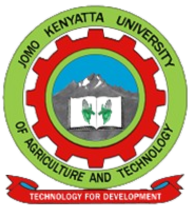Institutions of higher education increasingly recognize internationalization as a pivotal conduit for fostering student and knowledge exchange, elevating academic standards, and enhancing overall quality. This plays a vital role in expanding participation opportunities and bolstering global competitiveness.
To this end, JKUAT in collaboration with Dedan Kimathi University of Technology (DeKUT), University of Hannover, San Pablo Catholic University (Arequipa, Peru) and Manipal Academy of Higher Education-MAHE (Manipal, India) organized the Dialogue on Innovative Higher Education Strategies (DIES) Training Workshop, February 26 – March 1, 2024.
The programme christened ‘Focusing on the Structures and Key Tasks of Internationalization Management’, provides participants, particularly university staff, with competencies to manage processes and tasks of internationalization in the area of higher education.
The participants will engage in training courses designed to meet global quality standards, align with key initiatives, and foster collaborations aimed at enhancing professionalism in institutional management procedures and developing research capacity.
“This event provides an essential forum for exploring the complex issues related to internationalization that higher education institutions face. It allows us to share our experiences, get new perspectives, and work together to develop solutions to these problems,” said the Vice Chancellor, Prof. Victoria Ngumi through a speech read on her behalf by the Ag. Deputy Vice Chancellor, Administration and Finance, Prof. Daniel Sila.

Dr. Dorothee Weyler of the (German Academic Exchange Service) DAAD addresses the participants
Prof. Ngumi stated that internationalization is an important factor shaping global and technological economies. She emphasized the importance of establishing strong frameworks that will allow institutions to capitalize on opportunities and find appropriate solutions to challenges that they face.
The Vice Chancellor emphasized that internationalization is deeply embedded in JKUAT’s vision and mission, evident through its proactive approach to global engagement. She highlighted the university’s steadfast commitment to playing a pivotal role in community and global development.
“Our impetus for internationalization derives from a variety of causes, including joint research endeavors, hosting regional initiatives such as the Pan Africa University, and cultivating ties with prominent institutions globally,” observed Prof. Ngumi.
The Vice Chancellor thanked Dr. Dorothee Weyler of the (German Academic Exchange Service) DAAD, Dr. Birgit Barden-Läufer of Leibniz University Hannover, and other partners for their steadfast support, saying the workshop will promote stimulating exchanges and beneficial partnerships.
Dr. Dorothee Weyler and Dr. Birgit Barden-Laufer echoed in unison their organizations’ unwavering dedication to empowering, mentoring, and supporting African leaders, ensuring they possess the requisite skills to make informed decisions in their managerial capacities.
Moreover, they assert that over the past decade, participants have effectively enhanced and broadened the internationalization frameworks within their respective home universities, attributing this success to the longevity of the program.
Prof. John Wesonga, the Regional Coordinator, lauded the workshop’s impact, claiming that it has shifted the narrative of internationalization in higher education institutions.
“Over 60 recipients of this course have completed the program and are already applying their skills at their respective institutions. Initially, many higher education establishments were hesitant to embrace internationalization; however, through our concerted efforts and the support of this program, we have significantly shifted the perspective on internationalization to a more favorable stance.,” said Prof. Wesonga.
Since its inception in 2013, the program has been financed by DAAD and the German Rector’s Conference (HRK) and is hosted in the region by a partner university. So far, there have been six training cohorts, each with thirty participants, totaling 180 trainings among them 60 Africans.

JKUAT Hosts the Internationalization training workshop at IpIC.


Leave a Reply